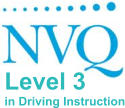
TIMS SCHOOL OF MOTORING




CODE OF PRACTICE
Personal Conduct
Your driving instructor will seek at all times to comply with the law and, in particular, legislative
requirements related to discrimination, data protection, trading standards, the workplace and
road safety.
Your driving instructor will at all times treat clients with respect and consideration.
Your driving instructor will maintain professional standards of personal hygiene and dress.
Your driving instructor should not knowingly create or enter a situation where they and the client are
likely to be unobservable.
Your driving instructor, being in a position of trust, should avoid any behaviour which encourages a
physical or emotionally dependent relationship to develop with a client .
Your driving instructor will endeavour to maintain his skills and knowledge to the required minimum
standards.
Your driving instructor will avoid physical contact with a client except in an emergency .
Your driving instructor will not make contact with the client via phone, text, email or any other
means unless the nature of the communication is wholly business related.
Your driving instructor will not make comments or converse with the client about issues that could
be deemed inappropriate, discriminatory, lewd or offensive.
Your driving instructor will liaise with DSA and its contractors’ to complete the necessary
documentation to allow criminal record checks to be completed when required.
Your driving instructor will not use a mobile phone (including hands free phones) whilst deemed to
be in control of the car, whether from the driver or passenger seat.
Your driving instructor will ensure that the car is fit for purpose in that it is roadworthy, clean, odour
free and a suitable environment where tuition can take place.
Business Dealings
Your driving instructor will safeguard and be able to account for any monies paid in advance by the
client in respect of lessons, test fees or for any other purpose and will make the details available to
the client on request.
Your driving instructor will provide a copy of this Code of Practice, or highlight where it is available,
to the client.
Your driving instructor on or before the first lesson should provide clients with a written copy of
their terms of business to include:
•
legal identity of the school/instructor with full address and telephone number at which the
instructor or their representative can be contacted.
•
the price and duration of lessons.
•
the price and conditions for use of a car for any practical test and any related booking fees.
•
the terms under which cancellation by either party may take place.
•
the procedure for complaints.
•
and, in addition, should show the client their valid certificate or licence.
Your driving instructor should check a client's entitlement to drive the car and their ability to read a
number plate at the statutory distance on the first lesson and before driving the vehicle.
When presenting a client for a practical test the instructor should ensure that the client has all the
necessary documentation to enable them to take the test and show that the vehicle is roadworthy.
Further, the car should be prepared so that DSA supervising examiners can accompany the test if
necessary.
Your driving instructor will advise clients when to apply for their theory and practical tests, taking
account of local waiting times and forecast of the clients' potential for achieving a consistent
standard of safe driving. The instructor will not cancel or re-arrange a test without the client being
informed. In the event of the instructor’s decision to withhold the use of the school vehicle for the
test, sufficient notice should be given to the client to avoid loss of the DSA test fee.
Your driving instructor should at all times, endeavour to teach the client correct knowledge and skills
according to DSA's recommended syllabus.
Your driving instructor should ensure that any discussions that occur with the client are treated in the
strictest confidence and not disclosed to third parties.
Advertising
The advertising of tuition shall be factual, honest and not misleading; claims made will be
verifiable and comply with codes of practice set down by the Advertising Standards Authority
(ASA).
Advertising that refers to clients' pass rates must be factual and verifiable. Advertised pass rates
should not be open to misinterpretation and the basis on which the pass rate has been calculated
should be made clear.
Instructors must comply with DSA guidance on use of appropriate logos.
Conciliation
Complaints by clients should be made to the instructor/ school in the first instance and follow the
complaints procedure issued by the instructor/school.
Failing agreement or settlement of a dispute reference may be made to the DVSA to consider the
matter and advise accordingly.




































